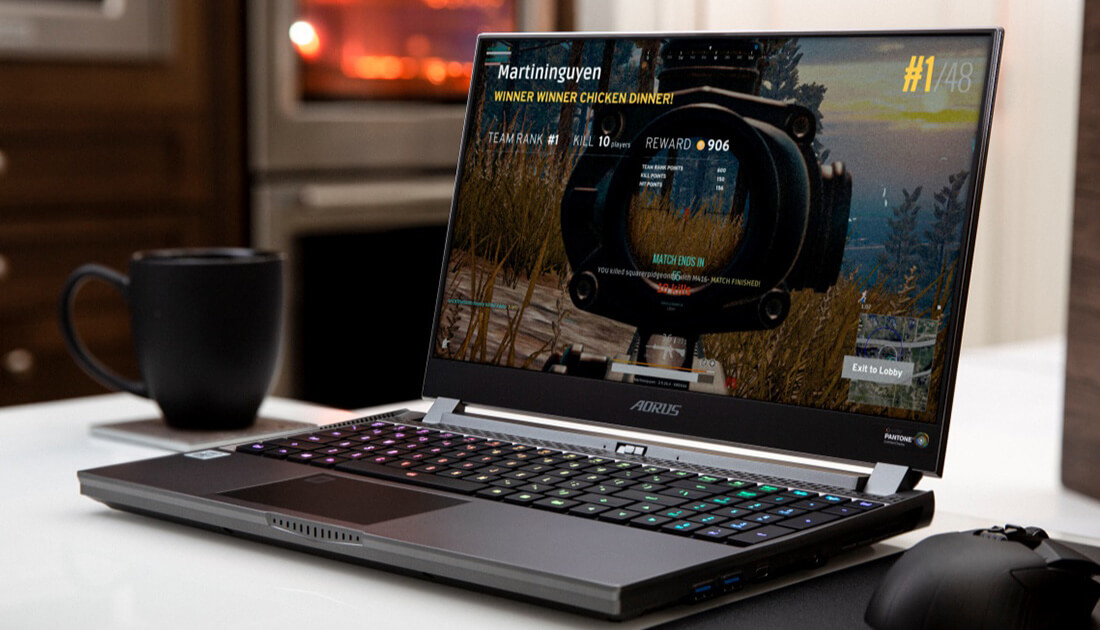Computer technology is more advanced than ever, with intricate sets of specifications being paraded in front of us in adverts and online. Understanding the real-world effect of these specifications, and what makes them useful for gamers, is vital in understanding how to never over-pay for a product (or end up with a laptop that can’t run your game). Familiarize yourself with the technical terminology below and you will make the right decision when you buy your next laptop.
The processor
The specifications of a computer processor will be given to you using the following terminology:
- GHz
- Cores
- Threads
- Cache
These terms each describe the processor and how powerful it is. Firstly, GHz stands for Gigahertz. Gigahertz is a measure of speed, and more specifically, how much data can be moved in one second on the processor. Essentially, the higher the number, the faster the processor can handle requests and provide electrical signals.
Secondly, cores are separate processors that can act in tandem inside your system. Your processor can split usage across its cores, which means multitasking or extreme processes can be accommodated.
Thirdly, threads are the even smaller subset of processing that exist within cores. In general, you can expect that each core provides 2 threads. These are simply a further division of the processing power of your system but are virtual, not physical. What this means is your processor is physically split into cores, and those cores create threads to virtually divide up processing work.
Finally, your processor cache works like any other memory cache. It stores short-term information for quick access to the processor. This is similar to how a webpage opens faster the second time you load it up because your system “remembers” the page. That “memory” is your cache.
The Graphics Card/Chip

One of the most important aspects of gaming (although useless without the other parts too) is the graphics card. Graphics cards are branded and presented differently by each company that produces them but the 2 most important pieces of terminology are:
- The issue number
- The listed GB of the card
Firstly, your graphics card issue number is important because it tells you how recent and powerful the card is. For example, an NVIDIA 1050 Ti 4GB is older than an NVIDIA 3050 Ti 4GB. The first numbers “1050” and “3050” are the issue numbers, showing the series and model of the card.
Secondly, your card will have a Gigabyte (GB) number. This is the total capacity your card has for gaming memory. Your card can be processing and dealing with information up to that amount, although not all data needed for the game is in use at once, so a 4-8GB graphics card can run games that are upwards of 100GB on your system’s hard drive or SSD.
RAM (Random Access Memory)
In addition to your normal storage on a hard drive or SSD, your laptop will have RAM. This is the memory that acts similarly to the processor cache. Any data that is used and likely to be needed again is stored in RAM for later (or imminent) use. This speeds up the process of loading games or rendering objects, as the system doesn’t have to access the main hard drive each time, and can just pull the information from RAM instead. RAM is designed for speed while Hard Drives and SSDs are designed for storage.
In a modern system, you will have RAM specifications that look like this: 16GB DDR5 RAM. The GB is the capacity of the RAM, just like before. The “DDR” number is the speed rating of the RAM. DDR4 was the most common for many years, but modern systems use DDR5. The best examples of laptops that combine these specifications into a high-end gaming machine can be found here: https://www.lenovo.com/us/en/d/ideapad-3-series/
Storage
Lastly, and simplest of all, is your laptop storage. This will be a Hard Drive (HDD) or Solid-State Drive (SSD). They both have capacity measured in GB like before, and both need to be large enough to hold all the games and apps you want.
The only practical difference between the two is an SSD is faster. While an HDD is tuned for space, an SSD is a mix of space and speed. This means your PC will turn on faster, load games faster, and launch programs faster. It will not, however, affect the graphical quality of games – only their load times and speed.













